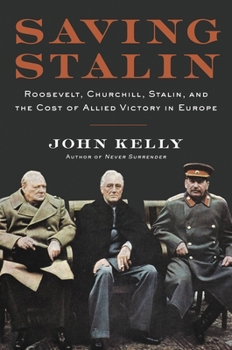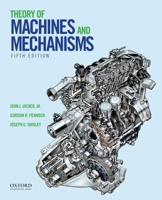Saving Stalin: Roosevelt, Churchill, Stalin, and the Cost of Allied Victory in Europe
Select Format
Select Condition 
Based on Your Recent Browsing
Book Overview
During World War II, the Allied leaders banded together, forged a great victory--and created a new and dangerous post-war world.
In the summer of 1941, Harry Hopkins, Franklin Roosevelt's trusted advisor, arrived in Moscow to assess whether the US should send aid to Russia as it had to Britain. Unofficially, he was there to determine whether Josef Stalin--the man who had killed over six million Ukrainians during the 1930s--was worth saving.
In this riveting and sweeping narrative, author John Kelly chronicles the turbulent wartime relationship between the great leaders--Roosevelt, Churchill, and Stalin--and military commanders of America, Britain, and the Soviet Union. Faced with the greatest challenge of the century, the Allied leaders and their war managers struggled against a common enemy--and each other. The story behind how victory was forged is an epic story, rich in drama, passion and larger-than-life personalities. The Allies eventually triumphed, but at what cost?
Using his trademark character-rich writing style and focusing on unique, unknown, and unexplored aspects of the story, Kelly offers a fresh perspective on the decision-making that changed the course of the war--and the course of history.
Saving Stalin brings to vivid life the epic story of the century's greatest human catastrophe. It is an unforgettable master work in historical narrative.
In the summer of 1941, Harry Hopkins, Franklin Roosevelt's trusted advisor, arrived in Moscow to assess whether the US should send aid to Russia as it had to Britain. Unofficially, he was there to determine whether Josef Stalin--the man who had killed over six million Ukrainians during the 1930s--was worth saving.
In this riveting and sweeping narrative, author John Kelly chronicles the turbulent wartime relationship between the great leaders--Roosevelt, Churchill, and Stalin--and military commanders of America, Britain, and the Soviet Union. Faced with the greatest challenge of the century, the Allied leaders and their war managers struggled against a common enemy--and each other. The story behind how victory was forged is an epic story, rich in drama, passion and larger-than-life personalities. The Allies eventually triumphed, but at what cost?
Using his trademark character-rich writing style and focusing on unique, unknown, and unexplored aspects of the story, Kelly offers a fresh perspective on the decision-making that changed the course of the war--and the course of history.
Saving Stalin brings to vivid life the epic story of the century's greatest human catastrophe. It is an unforgettable master work in historical narrative.
Format:Hardcover
Language:English
ISBN:030690277X
ISBN13:9780306902772
Release Date:October 2020
Publisher:Grand Central Publishing
Length:384 Pages
Weight:1.40 lbs.
Dimensions:1.4" x 6.2" x 9.1"
More by John J. Uicker Jr.
Customer Reviews
5 customer ratings | 4 reviews
There are currently no reviews. Be the first to review this work.























